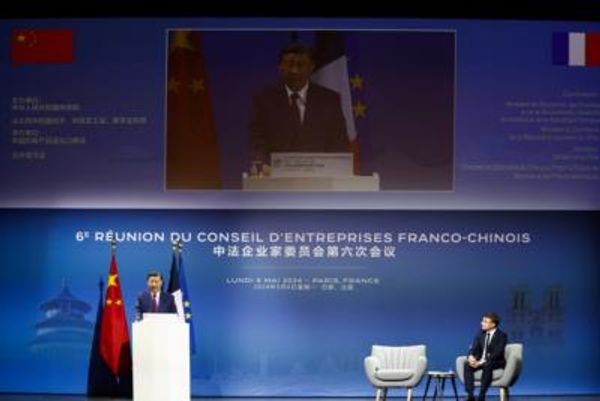
At the beginning of this week, the Morrison government, through Attorney-General Michaelia Cash, did something absolutely shocking and entirely predictable at the same time.
It announced that another batch of Liberal Party friends, flunkies and failed candidates would be given very highly paid jobs for up to seven years as members of the Administrative Appeals Tribunal (AAT), the quasi-judicial review body.
It’s almost impossible to be sacked from the AAT. The appointments are made without an open interview process and are entirely at the discretion of the government.
The arrangement is utterly corrupt. It couldn’t be more brazen. There was a time when the government would put out news of AAT appointments late on a Friday. Now it is so confident it will get away with it that it no longer bothers even trying to hide it.
Now, as the Morrison government faces its possible end, the story of what has been done to the AAT from the time of Tony Abbott in 2013 stands as a powerful symbol of the government’s destructive force when it comes to the public interest. It is also a sobering tale of the media’s failure to recognise the gravity of what has unfolded and to ring the alarm loud and clear as pillars of democracy come under attack. The media will need to have its own reckoning at some point to come to grips with its role in normalising corruption. More on that later.
The most brazen act yet
As Crikey reported on Monday, several of the Morrison government’s friends were just appointed to plum AAT jobs. For some it was the first time. Others were already there and were given a promotion or an extension of their tenure.
The appointment of Pru Goward, a former NSW government minister and biographer of John Howard, attracted attention because of a certain upstairs-downstairs view of life that she displayed in a notorious column she wrote for the Australian Financial Review. Goward’s annual salary as a senior member of the tribunal is up to $391,940 per annum.
The appointment of Ann Duffield stands out, mainly because of the ability she has shown to slide effortlessly between roles as a political chief of staff (to Philip Ruddock and Scott Morrison while they were immigration ministers) to an executive at Canberra lobbyists DPG Advisory Solutions (which is populated by Morrison’s close associates and fellow Liberals David Gazard and Scott Briggs), and now to the AAT as a part-time senior member.
This is nothing against Duffield. Who wouldn’t take this job?
But you really do wonder about the chutzpah of the government. It did the same thing in 2019 when Christian Porter was attorney-general and it looked like the Coalition might lose the coming election. Porter put out the usual statement about all appointments being made on merit. There was an uproar lasting approximately 24 hours and then it was back to normal transmission.
But 2022 is by degrees more brazen because the new batch of political appointments coincides with the publication — three days before — of a weighty Senate committee report into the AAT detailing exactly how corrupted the system of appointments has become. The inquiry was led by ALP Senator Kim Carr, who appears to believe that the independence of the tribunal should be respected and that people should be appointed on merit. How quaint.
Professional bodies such as the Law Council of Australia, the Australian Lawyers Alliance and the NSW Bar Association, as well as legal academics, were largely united on the proposition that the best person should get the job and that they should be found via a transparent appointment process with clear selection criteria (rather then the AG looking after a political friend who might have lost their seat in Parliament).
The Grattan Institute, working partly with figures drawn from Crikey’s investigative series in 2019, came up with some startling numbers.
The institute found that the number of AAT members with political affiliations had increased sharply. In the 12 years before 2015–16, 4% of appointees had political affiliations, compared to 29% in the five years since.
Grattan also built a case study based on emails obtained under freedom of information (FOI) data that show that in 2019 Christian Porter had come up with “several additional appointments” who were not known to the Attorney-General’s Department. The department had been given a list of names that the president of the AAT had recommended as possible members.
Of the 18 additional appointments advanced by Porter and disclosed in the FOI records, 10 (55%) had a direct political affiliation with the Coalition. Three had other connections to the Coalition but did not meet Grattan’s definition of a direct political affiliation.
The Senate committee’s report pointed to other inquiries that had recommended changes to the appointments process. One was a review commissioned by Porter himself and carried out by former High Court justice Ian Callinan QC in 2018. It too recommended making the appointments process transparent.
The majority of senators concluded that the AAT system was so broken that the tribunal in its present form needed to be “disassembled” and rebuilt. (Coalition senators, naturally, dissented.)
This startling recommendation has barely caused a ripple.
Crikey asked Labor’s Mark Dreyfus, attorney-general under the Gillard and Rudd governments, if this meant a new ALP government would disband the AAT and start again, as the party’s own senators recommended. The answer was no… but.
“Since 2013 the Liberals have undermined the Administrative Appeals Tribunal by using it as a Liberal Party employment agency, appointing at least 85 of their mates to very highly paid, secure jobs on the tribunal,” Dreyfus said in a statement to Crikey.
“If we are elected, Labor will need to carefully consider how we undo the damage of the last nine years, as we ensure the AAT once again serves the interests of all Australians, not just the Liberal Party and its mates.”
So where has the media been?
The destruction of the AAT and the escalation of its use as a vehicle for political patronage has profound consequences. Yet it has flown sufficiently under the radar for the government to get away with it.
The media shares the blame for this. Reporters get jaded. Some dismiss the story on the grounds that this is what politicians do. There is the argument that “both sides do it”.
Major news sites reported the latest appointments on Monday and Tuesday this week.
However government strategists know that the main game when it comes to voter perceptions is the nightly television news — a platform ill-suited to covering the complexity and detail of the AAT story.
The story rated only a cursory mention in the ABC’s 7pm bulletins in NSW and Victoria, at the end of a politics package mostly focused on the fallout of Concetta Fierravanti-Wells’ allegations of racist comments by Scott Morrison.
“Meanwhile the Coalition’s clearing the decks, appointing a raft of Liberals to lucrative taxpayer-funded positions in what Labor is already calling a ‘jobs for mates rort’,” the reporter said, casting the scandal as just another political bunfight with no actual mention of the AAT.
For commercial television the story simply fails the “who cares?” test and lacks good pictures — the ultimate sin for television news.







